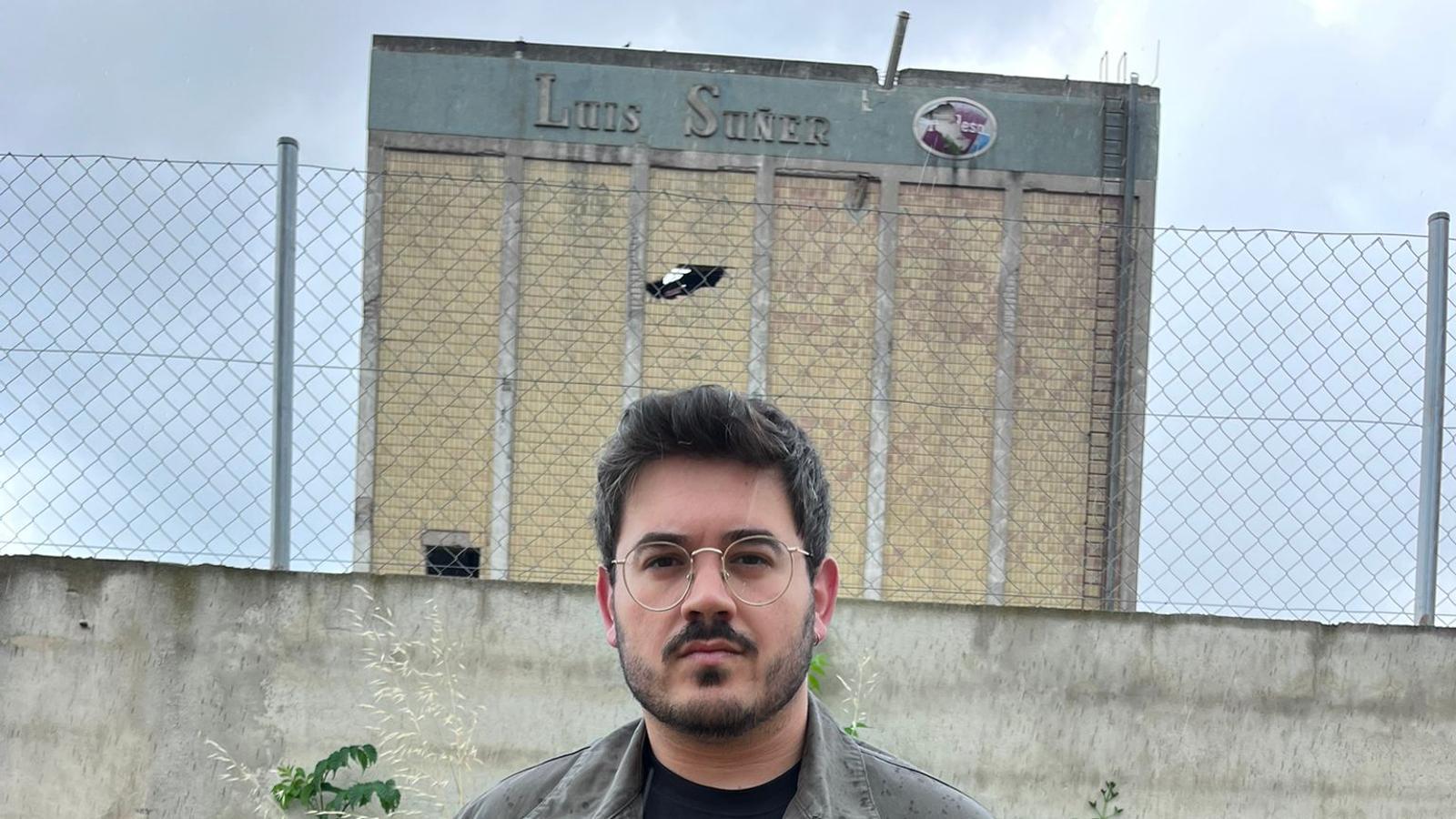Sergi Moyano: "With the political-military ETA, there was a covert amnesty."
Journalist

ValenciaThe Valencian journalist Sergi Moyano (Carcaixent, 2000) publishes Operation Apollo. The kidnapping of Luis Suñer by the political-military ETA with the support of the Union of Valencian Journalists and the Alfons el Magnànim Institution. The work reconstructs the kidnapping of the Alzira businessman on January 13, 1981, and reveals previously unknown details, such as the participation of Valencian citizens in the operation.
How does the investigation begin?
— A friend confessed to me that she had been good friends with a boy who told her he was one of the kidnappers. She didn't want to tell me who he was, but I started tying heads and got to him, and he agreed to talk for the first time. It was the first and only ETA kidnapping in the Valencian Community, and it shocked society not only in Alzira but throughout the entire Valencian Community.
He had access to the case file but only spoke with one of the four members of the command, although the statute of limitations had expired.
— Most people tend not to want to reveal their involvement, especially in cases like this one, which are very delicate because they have never been arrested or identified. There was a kind of covert amnesty with the polymilia [Following an attack that left twelve dead in Madrid in 1974, a split occurred between the military ETA and the political-military ETA.] Those who had open cases were acquitted due to a supposed lack of evidence, and others were pardoned.
It reveals that the hiding place where Suñer was held was in a municipality in the Safor region.
— They knew they had to blend in as much as possible in the Valencian Community. They took advantage of the fact that Xavi and Nel·lo [fictitious names for two of the four members of the commando] were planning to open a business in an old house in the village. They made a hole in the yard, and on a day-to-day basis they ran the business.
It recounts curious episodes, such as the businessman's reproaches to the family for trying to reduce the bailout.
— The family received a letter from Suñer, who, from his hiding place, insulted all his relatives because the negotiations were going badly. In the letter, he told his daughter: "What do you want to inherit now? What do you want? Are they going to kill me?Initially, the political-military ETA demanded 1.5 billion pesetas, but finally accepted 325.
He was a frozen chicken, ice cream, and cardboard packaging entrepreneur. In 1978, he declared a net worth of 2.095 billion pesetas, the highest in the state. He was a very important figure in a city of 37,000 inhabitants at the time.
— It was Juan Roig [owner of Mercadona] from the 80s.
He says he was also capable of calling the Civil Guard to have some workers beaten up.
— He didn't tolerate class unionism. He was incomprehensible when people went on strike. He had a very paternalistic attitude. He built the houses his employees lived in, financed their cars, and deducted money from their salaries. He was the president of the falla, the brotherhood, the football club...
What remains of the Suñer empire?
— Nothing. He's either disappeared or his family has squandered him. In recent years, he's made some ruinous investments himself. Avidesa, the ice cream factory, now belongs to a private-label company.
The 23-F jeopardized kidnapping and played an important role in the political-military future of ETA.
— It was the element that made them realize that their activity put democracy and the institutions that were beginning to consolidate at risk.
With the dissolution of the political-military ETA, part of the ransom money was used to finance projects like the film "The Escape from Segovia." Are there any others?
— There are newspapers [Egin], magazines [Ere and Euskadi Sioux], some book... They also gave money to Latin American guerrillas, to a party of the Andalusian left... The polymilia They know that the last battle of a conflict is always the one in the story.
And to projects from the Catalan Countries?
— They had a particular connection with the Socialist Party of National Liberation (PSAN). In fact, they carried out a failed assault on the Berga military barracks together. They offered the Valencian couple part of the money [10%] to create a Valencian nationalist party, but they found no interlocutor.
Has the book changed your opinion on armed struggle?
— When you open a newspaper from any day in 1980, you find murders, kidnappings, extortions... It's changed my view of the Transition quite a bit. It was a Transition built on the deaths of all the people who were murdered during those years.
You've spoken with key ETA political-military leaders. What's your assessment?
— Many of them continue to justify their existence. It's also true that they're proud of the path they took to lay down their weapons [in 1982]. And they've welcomed the dissolution of ETA in 2000, in the sense that "we're moving forward now."
